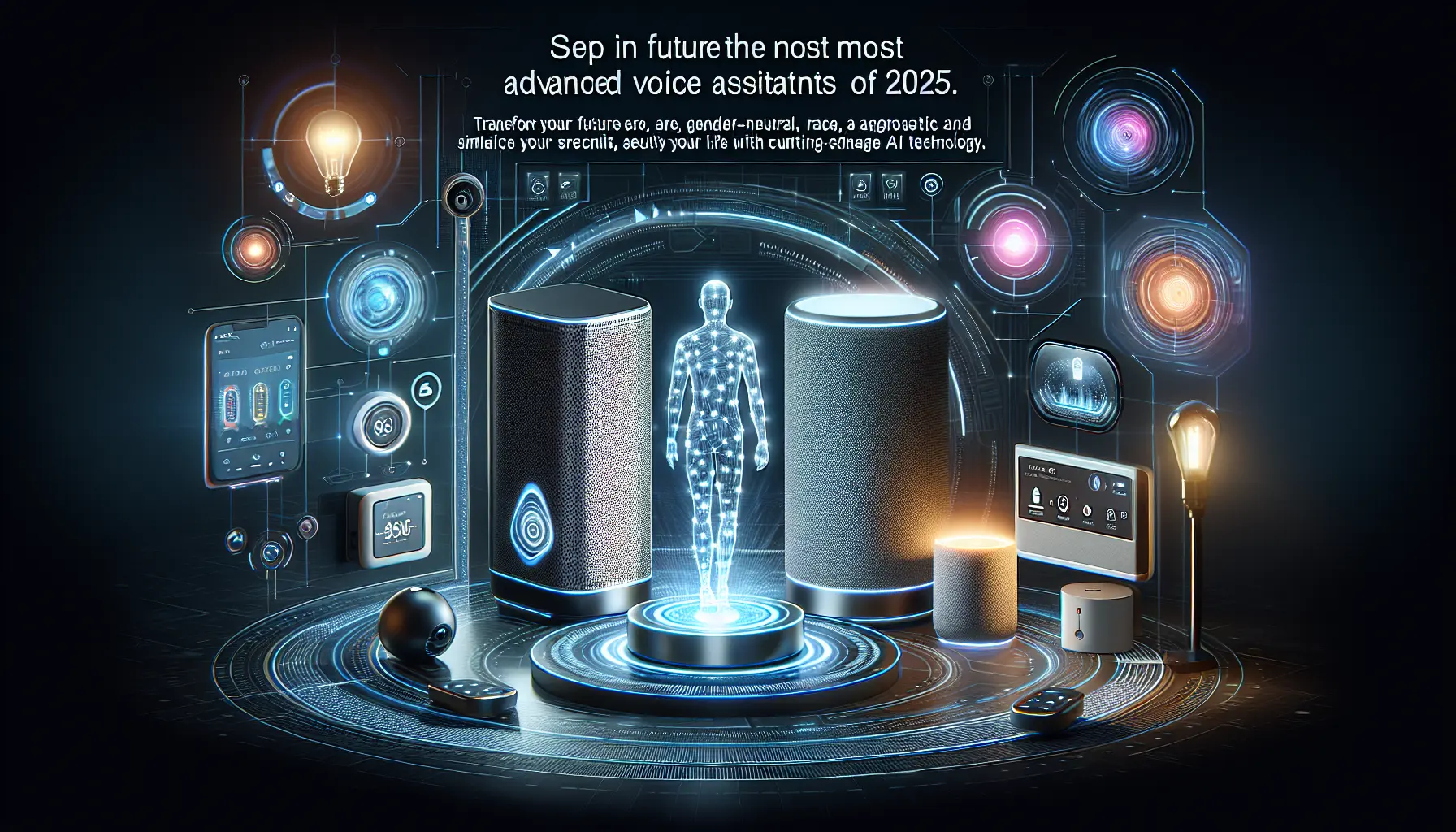
Estimated reading time: 8 minutes
Key Takeaways
- Voice Assistant Evolution: Voice assistants have advanced significantly, becoming essential tools for daily tasks.
- Feature Importance: Key features like voice recognition accuracy and ecosystem integration are crucial for user satisfaction.
- Privacy Matters: Understanding privacy features is vital when selecting a voice assistant.
- Real-World Performance: User experiences can provide valuable insights into the effectiveness of different voice assistants.
- Budget Considerations: Prices vary widely, so consider your budget when choosing a voice assistant.
Table of Contents
Why Voice Assistants Matter in 2025
Voice assistants have transformed from simple command-takers into sophisticated AI companions that streamline daily tasks, enhance productivity and control our smart environments. Whether you're looking to automate your home, boost work efficiency, or simplify daily routines, choosing the right voice assistant in 2025 can significantly impact your digital experience.
This guide analyzes current options to help you select the perfect voice assistant for your needs. We'll examine features, compatibility, and real-world performance to ensure you make an informed decision.
Understanding Modern Voice Assistants
Voice AI technology now enables natural conversations with devices, going far beyond basic commands. These systems process spoken language, understand context, and execute complex tasks across multiple devices and platforms.
The evolution of voice assistants has brought remarkable improvements in:
- Conversational ability and natural language processing
- Multi-device synchronization
- Smart home integration capabilities
- Language support and accessibility features
Essential Features for Voice Assistants in 2025
Voice Recognition Accuracy
Google Assistant leads in voice recognition precision, though competitors have made significant strides. Accurate voice recognition directly affects user satisfaction and daily utility.
Ecosystem Integration
Amazon Alexa offers the widest smart home device compatibility, while Apple's Siri provides seamless integration within the Apple ecosystem. Consider your existing devices when choosing an assistant.
Privacy Features
Privacy concerns remain crucial in 2025. Apple's Siri emphasizes user privacy, while alternatives like Mycroft focus on local processing and data protection.
Comprehensive Voice Assistant Comparison
Amazon Alexa
- Strengths: Extensive device compatibility, vast skill library
- Weaknesses: Privacy concerns, occasional ads
- Price: Free core service, devices from $40
Google Assistant
- Strengths: Superior voice recognition, strong AI capabilities
- Weaknesses: Fewer third-party integrations than Alexa
- Price: Free with compatible devices
Apple Siri
- Strengths: Privacy focus, seamless Apple integration
- Weaknesses: Limited to Apple devices
- Price: Included with Apple products
Real User Experiences
Smart home enthusiast Sarah Thompson shares: “Alexa manages my entire home automation system. The ability to create custom routines has simplified my morning schedule tremendously.”
Business owner Michael Chen reports: “We implemented PolyAI for customer service, and it handles basic inquiries 24/7, freeing our team for complex cases.”
Making Your Choice
Consider these factors when selecting your voice assistant:
- Current device ecosystem
- Primary use cases (home automation, productivity, entertainment)
- Privacy requirements
- Budget considerations
- Required features and integrations
Value and Pricing
Entry-level smart speakers start around $40-50, while premium options can exceed $300. Consider these aspects:
- Initial hardware costs
- Potential subscription fees
- Ecosystem expansion costs
- Long-term value and device longevity
Final Recommendations
For general users: Amazon Alexa or Google Assistant offer the most versatile experience.
For Apple users: Siri provides the most integrated experience.
For privacy-focused users: Consider Mycroft or Siri.
For Samsung users: Bixby offers deep hardware integration.
Remember to evaluate your specific needs against each assistant's strengths before making your final decision.
Additional Resources
- Manufacturer comparison tools
- Device compatibility checkers
- Setup guides and tutorials
- Privacy policy documentation
Share your experiences with voice assistants in the comments below, or contact us with specific questions about implementing these solutions in your home or business.
Frequently Asked Questions
What are voice assistants?
Voice assistants are AI-driven software applications that can perform tasks or services based on voice commands.
How do I choose the best voice assistant for my needs?
Consider factors such as device compatibility, primary use cases, privacy features, and budget when selecting a voice assistant.
Are voice assistants secure?
Security varies by platform; it's essential to review privacy policies and features to ensure your data is protected.
Can I use multiple voice assistants in my home?
Yes, many users integrate multiple voice assistants for different functionalities and preferences.
What is the future of voice assistants?
The future of voice assistants includes improved AI capabilities, better integration with smart devices, and enhanced privacy features.









